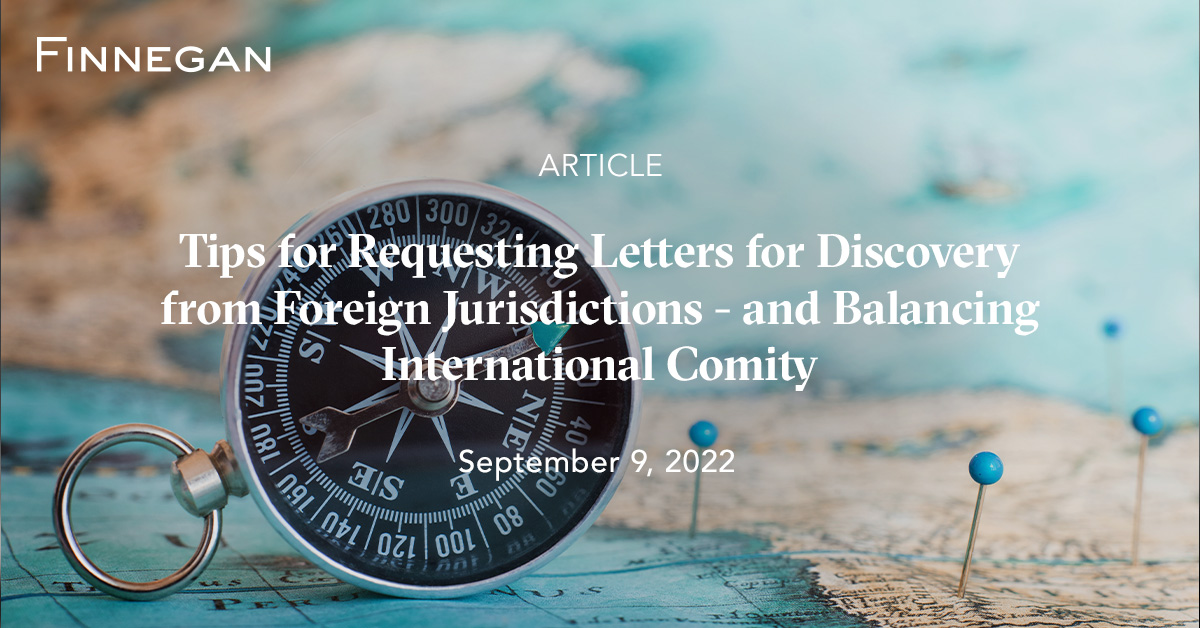The Impact of Technology on the Efficiency of Letters Rogatory Processes
The Impact of Technology on the Efficiency of Letters Rogatory Processes
Blog Article
The Function of Letters Rogatory in International Law: Key Insights
Letters rogatory serve as a pivotal tool in global law, assisting in cross-border legal support by enabling territories to formally ask for proof and activities from one another. What ramifications might these difficulties have for future lawful procedures?
Interpretation of Letters Rogatory
In the realm of worldwide legislation, letters rogatory function as official demands issued by a court in one territory to seek assistance from a court in another jurisdiction. Letters rogatory. These requests are particularly substantial in cross-border lawful procedures, where the enforcement of a court's order or the gathering of proof may be impeded due to administrative restrictions

The process generally requires the requesting court to express the details information or action required from the international court, adhering to the lawful protocols and conventions developed in between the territories involved. Once released, the letters rogatory are sent via polite networks, which might consist of consular offices or consulates, to make sure that the demand is acknowledged and acted upon by the international court. Overall, letters rogatory exemplify the cooperative framework essential for reliable worldwide lawful procedures.
Historic Context
Although the method of letters rogatory has old origins, its formalization within the framework of worldwide legislation emerged dramatically in the 20th century. Historically, such ask for judicial aid were made use of in numerous lawful traditions, including Roman regulation, where they facilitated cross-border participation in legal matters. The principle got renewed interest with the increase of globalization and the raising complexity of global lawful communications.
The mid-20th century saw the facility of treaties and conventions that sought to systematize the procedure of letters rogatory. Significantly, the 1970 Hague Convention on the Taking of Evidence Abroad in Commercial or civil Matters gave an organized strategy, enhancing the efficacy of these demands - Letters rogatory. This period marked a shift from informal arrangements to a much more methodical framework, which dealt with the difficulties presented by varying nationwide lawful systems
As states came to be a lot more interdependent, the requirement for reliable systems to gather proof across borders became obvious, strengthening the duty of letters rogatory in facilitating worldwide collaboration. Today, they stay a crucial instrument for getting evidence and making sure that justice goes beyond national limits, reflecting the evolving nature of international regulation in feedback to worldwide challenges.
Refine of Issuing Requests
The process of issuing letters rogatory commonly entails several important actions created to ensure that ask for judicial aid are clear, specific, and compliant with both worldwide and residential legal standards. A party looking for support needs to prepare an official request that describes the essential facts of the situation, the alleviation looked for, and the details evidence or testament required. This record should be crafted with accuracy to fulfill the legal needs of the territory in which it will certainly be submitted.
Complying with the preparation of the demand, it is sent to the proper authority, frequently a court or an assigned governmental company. This authority evaluates the request to ensure it follows lawful requirements and procedural standards. Once authorized, the demand is sent to the foreign territory with diplomatic channels.
Upon invoice, the international court assesses the demand's compliance with its neighborhood regulations and practices (Letters rogatory). If approved, it continues to perform the request, which might involve the issuance of subpoenas or the collection of evidence. Throughout this process, preserving clear communication in between the requesting and obtaining territories is pop over here important to guarantee successful cooperation and the fulfillment of the demand
Difficulties and Limitations
Constraints and challenges often emerge in the procedure of implementing letters rogatory, usually originating from varying legal systems and treatments in between jurisdictions. One substantial challenge is the varying standards of admissibility for proof, which can cause problems in the approval of paperwork asked for with letters rogatory. In addition, the absence of uniformity in legal terms and meanings can develop misunderstandings, complicating interaction in between courts in different nations.
Moreover, hold-ups are typical due to governmental procedures, as the request site here may require to pass through several layers of lawful authorities before it is met. In some instances, the requested jurisdiction might lack the essential resources or desire to cooperate, further hindering the procedure. Language barriers also add to obstacles, as accurate translation of legal papers is crucial for guaranteeing that the desired message is communicated without distortion.
Lastly, sovereignty problems might develop, as some states are reluctant to comply with demands that they regard as infringing upon their legal freedom. These challenges highlight the intricacies intrinsic in making use of letters rogatory, necessitating better harmonization and collaboration amongst international legal systems to improve their performance.

Influence On International Teamwork
Identifying the value of letters rogatory in fostering global collaboration is essential, as these requests promote cross-border lawful help and advertise collective initiatives in civil and criminal issues. By allowing one jurisdiction to officially ask for aid from another, letters rogatory develop a structured legal structure that boosts the efficiency of international interaction in between judicial authorities.
Using letters rogatory helps to establish shared depend on and respect among countries, which is necessary in a progressively interconnected globe. They offer as a device not only for collecting proof yet likewise for guaranteeing that lawful processes are maintained across boundaries. This is especially essential in combating multinational criminal activity, where the failure to safeguard collaboration can threaten justice.
Moreover, the reliance on letters rogatory can streamline complex legal proceedings, lowering delays and unpredictabilities in international examinations. The step-by-step safeguards inherent in this process contribute to the protection of individual civil liberties while promoting collaboration among states. Ultimately, the effect of letters rogatory on worldwide collaboration highlights their role as vital devices in the promotion of justice, promoting a collaborative spirit that transcends legal systems and find here national boundaries.
Conclusion
In final thought, letters rogatory serve as a crucial instrument in global law, promoting cross-border legal support and collaboration. The continued advancement of these mechanisms is necessary for boosting the effectiveness of worldwide legal processes, ultimately cultivating stronger partnership in both criminal and civil issues throughout jurisdictions.
Letters rogatory serve as a crucial instrument in global law, facilitating cross-border legal assistance by enabling jurisdictions to officially ask for proof and activities from one an additional.The procedure usually needs the asking for court to articulate the specific details or action needed from the international court, sticking to the lawful protocols and conventions developed between the territories included. Historically, such requests for judicial support were utilized in various legal customs, including Roman legislation, where they promoted cross-border collaboration in legal matters.The process of releasing letters rogatory generally entails a number of crucial actions made to guarantee that demands for judicial assistance are clear, certain, and compliant with both domestic and international lawful criteria.In addition, hold-ups are common due to bureaucratic processes, as the demand might need to pass with multiple layers of legal authorities prior to it is fulfilled.
Report this page